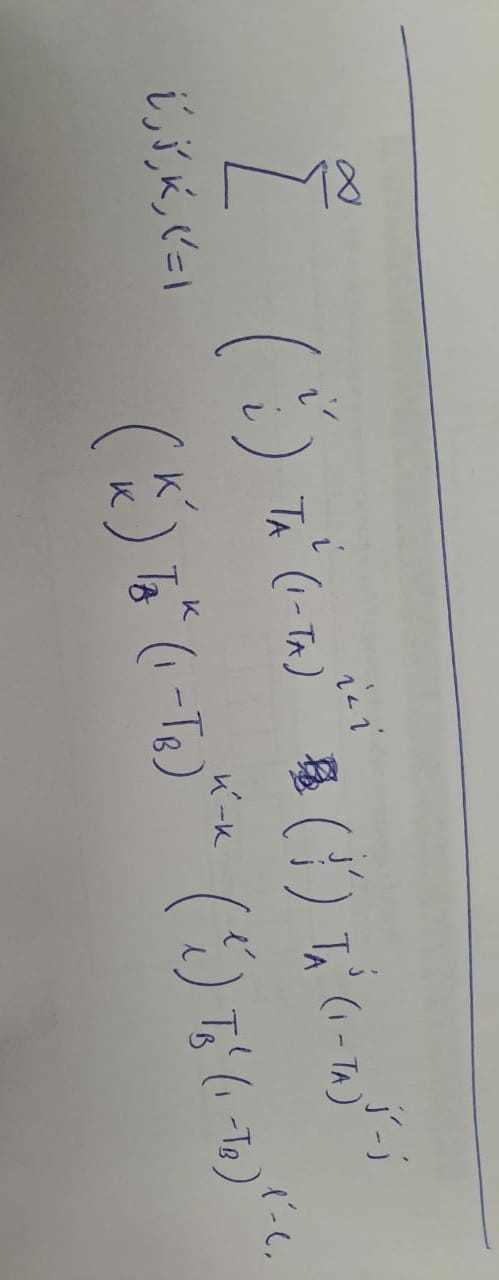I have to compute this,
I have written the Mathematica code, keeping Ta, and Tb as variables. Later we will compute prob[1,0,1,0,Ta,Tb]
In[75]:= prob[i_,j_,k_,l_,Ta_,Tb_]:= Sum[Binomial[ip,i]*Ta^i*(1-Ta)^(ip-i)*Binomial[jp,j]*Ta^j*(1-Ta)^(jp-j)*Binomial[kp,k]*Tb^k*(1-Tb)^(kp-k)*Binomial[lp,l]*Tb^l*(1-Tb)^(lp-l),{ip,1,Infinity},{jp,1,Infinity},{kp,1,Infinity},{lp,1,Infinity}];
In[80]:= prob[1,0,1,0,Ta,Tb]
Out[80]= ((-1+Ta) (-1+Tb))/(Ta^2 Tb^2)
My question is, 1. I have seen that if I use NSum in place of sum it takes too much to compute prob[1,0,1,0,Ta,Tb] what is the difference between sum and NSum here?
2. what will be a good idea to use here sum or NSum as I think Sum is not giving correct answer.(or maybe I am wrong that it is giving the correct answer)